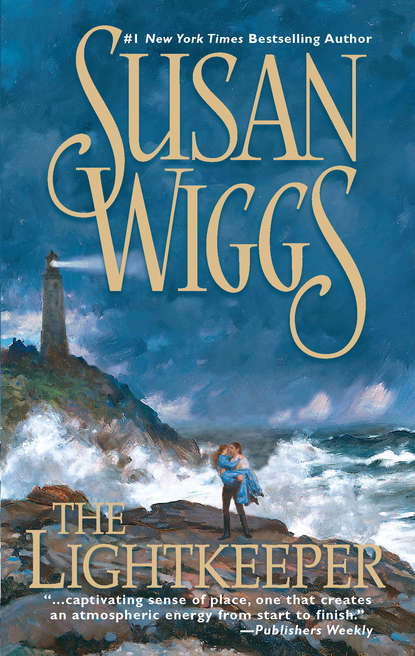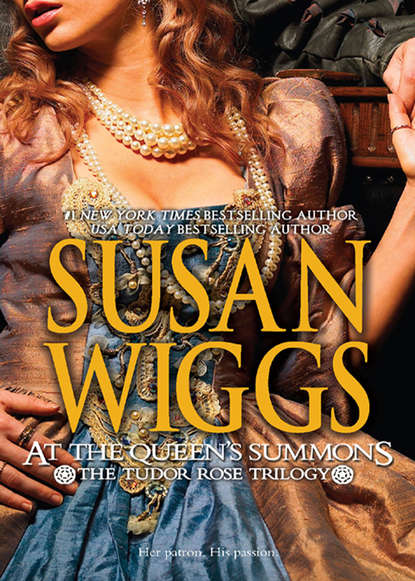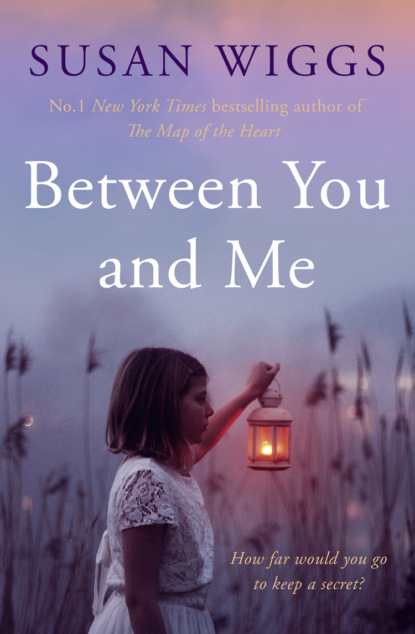
Полная версия
The Hostage
He pressed on harder, faster, seared by the blowing heat. He passed a lanky boy burdened with a shaggy dog that kept trying to escape its young master’s arms. The boy was about fourteen, the age Asa had been when he died. Tom tried not to see the struggling youth, tried not to hear the kid saying “Easy, Shep. Take it easy. I’ll keep you safe.” He tried not to remember the way a boy’s rounded face could look so damned earnest and protective. Tom felt relieved when the youth and his dog veered off toward the lake.
If he had lived, Asa would have been fifteen in the spring. He would have had his birthday in March, and maybe Tom would have given him a bowie knife or deer rifle to mark his step toward manhood. The two of them would have sat by the stove, tying flies or playing checkers. Even now, months after the accident, Tom could picture the complete absorption in Asa’s face when he worked on a fishing fly. He could still hear Asa’s laughter in his heart.
I miss you, Asa.
Turning down a nearly deserted side street, he walked faster, breathing hard as anticipation built, tasting smoke and ash in his throat. The smell of burning timber and the sight of falling cinders reminded him of being in the thick of battle. He never should have gone to war. Lightning Jack had warned him that it would steal his spirit.
Just as he had warned Asa about working at the mine.
Asa hadn’t listened any better than Tom had, in his youth. Bored by the routine of island life and winters spent under the tutelage of a demanding scholar, Tom had run away to join the fighting. What he had seen and done during those dark years had turned his soul to ice. Only the gift of Asa had dragged Tom back into the light. Now that Asa was gone, there was nothing to keep him from falling into darkness once again.
Firebrands and cinders rained thickly over the streets, and each brand ignited a new fire. Men posted on rooftops tried to defend some of the larger buildings, but the bright dervishes of flame made a mockery of their efforts. Distant explosions pocked the night, each greeted by frightened screams.
At a broad street, the crowd flowed northward, following a long strip of green space bordering the lake. Family members shouted at one another to hurry. Tom broke off from the surging refugees and headed in the opposite direction.
“Hey, mister,” someone hollered in a hoarse voice. “You don’t want to go that way. The fire crossed over the North Branch.”
Tom ignored the warning, though the news startled him. Only a fire of demonic proportions could cross a river as wide as the branches of the Chicago. The fire department would have no hope of stopping it now. He wondered if he would be able to reach the Sinclair mansion before the fire did.
He felt mildly startled to find himself alone on a deserted street. The fire raged through buildings on either side—one appeared to be a woodworking mill, the other a brewery. Strange, he thought dispassionately. The city was burning and no one was sticking around to defend it.
He passed into darkness as he headed north, away from the fire, and sensed a change in the atmosphere as he emerged onto Dearborn. The wide boulevard, flanked by stone pilasters and tall wrought iron fences, lay in perfect splendor, though smoke lay thick in the air. Broad lawns, some with coach houses and outbuildings, surrounded the opulent mansions. The homes resembled majestic fortresses with handsome gables and half-wheel windows three storeys up. Skylights and cupolas graced the rooflines. Through a broad bay window he saw a family sitting in a parlor, playing cards while a woman played piano. At some of the other houses, people gathered at the windows to watch the fire.
Yet the sky behind the sedate facades glowed with that ominous and unnatural orange tinge, spangled by flying sparks. These fine houses were not long for this world. He hoped like hell he’d have no trouble finding Sinclair’s house, and that his quarry would be at home. He had to consider the possibility that Arthur Sinclair had evacuated his house, but there was a good chance the wealthy industrialist might stay put. Judging by the spectators watching out the windows of the grand mansions, the rich felt safe from the flames. Men like Sinclair thought they were invincible, that their money could buy them anything, even protection from death.
Stupid fools.
Chapter Three
“Deborah, what the devil are you doing here?” Arthur Sinclair demanded, looking up from the large metal safe in the wall of his office. Grasping the open door of the safe, he stood, lurching a little on his bad leg as he turned to face her. His cane rested against the broad wall map behind the desk. The map depicted the Great Lakes and surrounding territory, with markers where his mines and timberlands were located. Standing before the map, he resembled a king surveying his realm. “It’s late,” he added. “You had an engagement tonight.”
“Hello, Father,” she said, crossing the plush carpet of Persian silk. Like everything else in the house, his estate office was self-consciously ornate and filled with antiques that were supposed to look as if they had been in the family for generations. The long Regency period bookcases housed leather-bound volumes he had never opened. The artwork on the dark green walls depicted hunting scenes in places he would never be invited. And the Louis XIV desk was littered with the work of a man who intended to muscle his way into society by brute strength rather than privilege of birth.
He was depending on Deborah to vault him to the next level of acceptance. And that was precisely what she had come to talk to him about.
She embraced her father lightly, kissing his cheek and then stepping back. As always, he smelled of bay rum and cigars. The scent evoked the feeling of security she always associated with her father and made her heart squeeze with fondness for him. Lord, she didn’t want to disappoint him. That was not what she wanted at all.
“I’m sorry I interrupted you,” she said.
He gestured at the open satchel on the floor that was stuffed with greenbacks and negotiable securities. “Getting my stock and insurance certificates together in case the worst happens.”
“The fire, you mean.”
“Yes. If they don’t get the blaze under control soon, I’m driving up to the lake house.” His handsome, craggy face creased into a scowl of disapproval as his gaze swept over her. “What the devil are you wearing? Was Dr. Moody’s appearance canceled due to the fire?”
“I don’t know,” she said, braiding her fingers together. Though accustomed to managing servants, maids, drivers and tradesmen, she doubted her ability to stand up to her father, who had been known to crush railroad magnates and mining barons in order to get his way. “I decided not to attend tonight. I needed to see you instead. To tell you—”
“Your fiancé’s already been to see me,” he said.
Her mouth went dry. All the blood seemed to drain out of her hands, leaving her fingers cold and numb. “Philip was here?”
Her father’s eyes held the sharp blue chill of shattered ice. “Earlier this evening. So I imagine I already know what you’re going to say.”
Dear God. What had Philip told her father?
Bile rose in her throat, and she could not speak until she managed to swallow. “What did he tell you?”
Arthur spread his hands. “He told me about the way you behaved at the opera last night. I’m ashamed of you, Deborah. Purely ashamed.”
This was the last thing she had expected. She hadn’t imagined Philip would complain to her father, of all things. She gaped at him, then found her voice. “Ashamed of me? But what did I—”
“Philip says he’s willing to overlook your outrageous behavior, thank God,” Arthur said. He turned away from her and began pulling boxes of bills and certificates out of the safe.
“My behavior?” she asked. She tried to cling to a sense of outrage, but in spite of her resolve, shame crept in. She had no idea what to say. All her life she had been provided with the best governesses, tutors, teachers and companions in the country. Yet not one of them had prepared her to deal with her own father.
“Your immaturity and foolishness are going to cost me dearly,” he blustered. “He wants me to double your dowry settlement. And I have no choice but to do as he asks.”
She forced out a dry, bitter laugh of disbelief. Philip Ascot IV had laid waste to her dreams last night, and as a reward, he expected twice the bride price he and her father had settled on. “Then you will be pleased to know that you won’t have to pay him a cent,” she said, keeping her voice firm even though she wanted to die. She loved her father, honored him, on occasion felt close to worshiping him. The times she had crossed him were few and far between, but now was one of those times.
“What in tarnation do you mean by that?”
“I’ve decided not to marry Philip,” she stated.
That got his attention. He froze in the midst of ramming notes and certificates into the leather satchel and turned to face her. “That’s not amusing, Deborah.”
“I’m not trying to be amusing. I’m trying to—” She paused. What was she doing? Her future, indeed her entire existence had been defined by the fact that she was going to be the wife of one of the most socially prominent men in the country. Without that, who was she? Until now, that question had never occurred to her but suddenly the answer seemed vital. Closing her eyes, she took a leap in the dark. “I won’t marry Philip Ascot.”
“You’re getting cold feet before the wedding,” her father said reasonably, his face softening with an indulgent smile. “Common enough in a bride, or so I’m told.”
She tried again. “It’s not a matter of cold feet. My mind and my heart have changed. Irrevocably. Until yesterday…I thought marrying Philip was the future I wanted. I didn’t know any better. I…I’m sorry.”
“The wedding will go forward as planned,” he snapped, his temper pushing through fatherly indulgence. “You’ll learn to govern your infantile tantrums and behave like a true woman. Everything is settled. The guest list includes everyone up to Mrs. Grant herself. You don’t simply tell the First Lady—”
“I’ll tell her myself,” Deborah promised, though the prospect terrified her. “We’re talking about the rest of my life, Father. I won’t live it with Philip Ascot.”
Anger blazed in his eyes. “You’ll live your life as I say,” he stated. “I have always acted in your best interest.”
“I know you believe you have,” she conceded. “But this time, I must trust my own judgment.”
“You will trust me. Haven’t I always given you the best of everything? Haven’t I spent a fortune turning you into the sort of young lady a man of quality dreams of marrying?”
“What about my dreams?” she asked, but she spoke so softly that he didn’t hear.
“You have no understanding of what your life would be if I simply let you have your way,” he went on, his face flushing a deep, unhealthy red. “You’d be hopeless, no better off than a saloon girl or a farm wife. Thanks to me, you’ll never know struggle, never know hardship. Your children will have the world at their feet. But only if you provide a proper family background—as an Ascot.”
Deborah began to pace the long, carpeted room. “You arranged this marriage with no regard for my wishes. Do you realize I was never asked? You and Philip met over brandy and cigars, and the next day I was presented with this.” She held up her hand, pale in the gaslight, a very large diamond winking obscenely.
“You seemed perfectly delighted,” he pointed out.
“Because you were, Father. I should have objected long ago.” But she hadn’t. She had been as dazzled by Philip’s good looks and charming flattery as her father had been by his social standing. “Don’t you see that when human hearts are involved, you can’t simply make things happen?”
“Balderdash. What are they teaching you at that school?”
“Clearly not enough to help me make you understand,” she said.
“Arranged marriages are the hallmark of a civilized society. Love doesn’t happen overnight. You must show patience and understanding, and above all, obedience to those who know what is best for you.”
“I will never love Philip. Ever.”
“The opportunity to marry into the Ascot family doesn’t arise very often. Philip’s an only child, and he has no cousins. You need this marriage, Deborah.”
“No, you need it. And Philip needs it. For all his blue-blooded pedigree, he is nearly destitute. He has the name. You have the fortune. Together the two of you have everything you want. I can’t imagine why you even need me. Just make him your son and be done with it.” The words burst from her, and the moment they were out, she wished she could catch them from the air and somehow make them disappear. But it was too late.
Her father stood staring at her, and his face bore the shocked expression of a man who had just been stabbed in the back.
Although he would never admit it, Arthur Sinclair had always felt inferior because his money was considered “new” by the upper crust. And to her father, the opinions of the socially prominent mattered greatly. He yearned for the one thing his money could not buy—the patina of generations-old gentility. In his mind—and in the minds of those he strove to impress—there was a particular quality to inherited wealth that was lacking in the fortunes of a self-made man. He would never be able to achieve that quality, but he could take a step closer by marrying his only daughter and heir to the flawlessly aristocratic Philip Widener Ascot IV.
They had never spoken of this, of course, and the fact that Deborah had brought it up was a measure of her desperation. Remorseful for having hurt him, she said, “You’re a good man, Father. The best there is. Whether or not I marry Philip will not change that.”
Slowly his coloring returned to normal. He no longer looked harsh or angry, just immeasurably disappointed.
“Father, I didn’t come here to quarrel with you,” she said quietly.
Moving as if his bones hurt, he lowered himself to his chair. When Deborah looked at him, she always saw a titan of industry, a man who was larger than life, larger than legend, even. Yet tonight, something was different. He simply looked like a man worn down by weariness. She couldn’t tell if the change was in her, or in him.
“Did I ever tell you what your mother said to me the day she died?” he asked after a long pause.
Deborah didn’t follow the sudden switch in topic, but he seemed calmer now. She owed it to him to let him make his point. “You’ve said so little of that day,” she said. “I know it must have been painful for you.”
She had been just three when her mother died giving birth to a stillborn son. Deborah had exactly one memory of her mother. It was just a flash of awareness, not really a full-blown memory. She had been too young for that. But that made the faint, flickering awareness all the more important to her.
Sometimes, when Deborah closed her eyes and emptied her mind, she could call up that memory, achingly vivid and scented with violets. She could feel the gentle touch of her mother’s cool hand on her brow, could recall being awash in her mother’s love. Even now, so many years later, she remembered the sweet whisper of a soft voice, saying, “Go to sleep, my precious girl. Go to sleep.”
And there it ended. Perhaps the moment had never really happened, perhaps Deborah had fabricated it out of her own yearning for just one tender memory of the mother she had never known. But no matter. She believed the moment had happened, and would never let the memory go. She held it clasped to her heart, stubbornly and tightly, like a pearl in a closed fist.
Her father had not remarried because, by then, pride and ambition held him in their grip. He would only accept a wife of the highest social distinction…yet such a woman would never have him, a vulgar upstart. Frustrated, he put all his energy into raising Deborah to achieve the one thing he never could—class. He never asked her if she wanted it; he just assumed she craved social prominence as intensely as he did.
He and Deborah only had each other. He regarded her as his most priceless ornament, and would settle for no less than a fourth-generation Ascot for her husband.
“What did she say, Father?” she asked gently.
“She knew she was…going,” he said gruffly, turning back to the safe. “She was…bleeding. The last thing she said to me was ‘Make her life perfect. Make everything perfect for her.’”
Deborah’s vision blurred with tears. She tried to imagine what those final moments had been like for her mother, holding her stillborn son and knowing she would never see her small daughter grow up. And all the while, her father had stood vigil, suffering the loss of his wife and only son.
“That’s all I’m trying to do,” Arthur explained. “I’m trying to make everything perfect for you, trying to give you the life your mother wanted for you. And by God, I intend to see it done.”
Gaslight hissed gently into the silent house. Deborah knew her father meant well, but she also knew she could not marry Philip Ascot or anyone else, for that matter. She must make her father understand and, in time, possibly even forgive her. After a lifetime of existing only to please Arthur Sinclair, crossing him in this one all-important matter would daunt even strong-willed Lucy or sturdy, practical Kathleen. Phoebe would be just as appalled as Deborah’s father, for she could not imagine anything more perfect than marrying the handsome, dashing heir to one of the oldest families in the country. Part of the marriage arrangement specified that the famous Ascot residence, Tarleton House in New York City, would be restored as their principle residence. Everyone at Miss Boylan’s thought it sounded like a dream come true, so much so that Deborah had forgotten to ask herself if it was what she wanted.
Deborah had no allies in this struggle of her will against that of her father. “Please,” she said. “Can we just discuss—”
“Certainly not,” he said, speaking brusquely. “I have said all I have to say on the matter.”
The look that crossed her face prompted him to add, “Go to bed, my dear. We’re both tired. In the morning you will apologize to Philip and pray he forgives you for being such a ninny.” Drawing the buckles tightly around his important papers, he walked to the door of the study. “Now, if you’ll excuse me, I must dismiss the help early tonight on account of the fire.”
A loud blast, like a gunshot, exploded in the night. Deborah sat up in her bed, already screaming before she was fully awake.
Her gaze darted to the lace-draped French windows. Judging by the angry scarlet glow of the sky, she thought morning had come. But then the sky flickered uneasily, and she remembered the fire. Dear heaven, hadn’t it been brought under control yet?
“Father,” she shrieked, leaping from her bed and yanking open the door.
To her relief, she spied him rushing down the hall toward her, satchel and cane in hand and kerosene lamp held high.
“What was that terrible noise?” she asked, shaken.
Gripping the head of his cane, he strode to the window. “The gasworks substation. Coal gas,” he added, his hand shaking just a little as he moved the drapes aside. “Highly explosive. I’m sure that was it, because there’s no gaslight in the house.”
Deborah joined him at the window and caught her breath in shock. The fire, which had caused her only a glimmer of concern earlier, had made hideous progress. Everything to the south and west was a sea of flame.
“Dear God,” she said. “It’s crossed the river. The whole city is on fire.” The incessant shriek of ships’ whistles pierced the roar of the wind. Boats crowded behind the bridges, demanding to be let through. The clear bong of a bell tolled a steady alarm. Shouts and the clatter of hooves could be heard in the neighboring streets. She pressed her fingertips to the window pane; the glass felt unnaturally warm.
“It’s that infernal wind,” her father said. “I went to bed thinking it couldn’t possibly spread the fire across the river, but there you are. It’s in the North Division.”
Whirlwinds and swirling gusts carried flaming brands from one building to the next. Structures ignited as if a torch were being touched to each, one after another. Dervishes of flame spun across rooftops with furious speed. The pine-block roadways and boardwalks fueled the inferno. In the main thoroughfares, people fled on foot or in overloaded conveyances manned by frantic drivers.
A shattering sound drew her attention to the upper-storey windows in the house across the street. As she watched, the windows blasted open, one after another, all in a row. It was as if someone had taken a gun and shot them out. Then, from an alley behind the house came a teamster, beating the horses of a cluttered cart, and as the team roared past, she could see that the very contents of the cart were in flames.
Huron Avenue itself lay in a shroud of smoke. Deborah turned to her father, clutching his sleeve. “This is a nightmare,” she said. “We must go!”
“Of course.” He glared out the window. If his ill temper could not douse the flames, nothing could. “The phaeton’s waiting in the mews behind the house. I had it readied before sending the hired men home tonight. Can you be ready in five minutes?”
“Less,” she said, already snatching her dress from the upholstered clothing stand in the corner. “Where will we go, Father?”
“To Avalon,” he said, referring to his summer estate in Lake View as he hurried out to ready himself.
Deborah had rarely dressed without help. On formal occasions, her corset was so stiff and tight that she couldn’t even bend to do up her own shoes. Tonight, the sense of impending danger made a mockery of the vanity that used to delight her so much. Her white batiste nightgown served as chemise and petticoat, for she tugged the dress right over the garment. She left her hair in its untidy braid, pulled on stockings and shoes, and grabbed her shawl.
Her nerves wouldn’t settle until she reached Avalon. Situated on the north shore overlooking the lake, the estate would provide a tranquil oasis from the flames, where they could wait out the fire. Perhaps, in the calm after the firestorm, she could bring her father to see reason in the matter of her marriage.
Firelight streamed through the windows, illuminating the suite of rooms where she had spent her childhood. All her costly, beautiful things were here, in a chamber redolent of verbena furniture polish and fresh-cut flowers. What if this magnificent house burned to the ground, and all its contents with it? She found, to her surprise, that she felt curiously indifferent about the notion of never seeing it again.
What sort of person was she, Deborah wondered as her father reappeared at her door, that she could be so calm about losing everything?
She noted that he had donned his best Savile Row suit and kid leather spats. Even in the face of disaster, he seemed determined to keep up appearances. He held his cane and the bulging case containing his most important documents. “Are you ready?” he asked.
“Yes, let’s go,” she said briskly. “And I’m glad we’re together,” she added.
They hastened to the door, and her father stopped. He put out his hand and cupped her cheek. She froze in surprise, for he rarely touched her with affection.
“I’m pleased that you came to see me tonight,” he said with the gruff tenderness that never failed to remind her that she was all he had in the world. “This matter with Philip—we’ll find an accord. You’ll see that marrying him is the proper course of things. The proper course indeed.”
“Oh, Father.” She bent her cheek into the cradle of his hand. “We really must go.”
She stepped out of the room and he turned, his hand on the door handle. A look of pure and utter desolation settled over his craggy face. In that moment, she realized that, although there was nothing for her in this house, nothing for her to clutch to her chest and go running through the streets with, it was different for Arthur Sinclair. This vast mansion was his dream, his place in the world, built by his own hard work and ambition.











